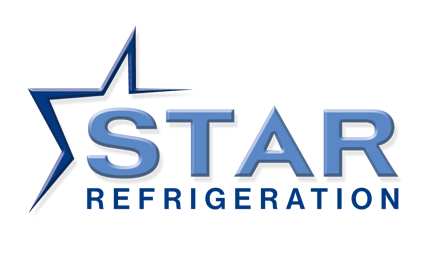Star Refrigeration offers a balanced view on Ammonia vs CO2 refrigeration at Cold Chain Federation’s online event

Star cooling experts will participate in three informative webinars during Cold Chain Refrigeration Week
Star Refrigeration is sponsoring this year’s Cold Chain Refrigeration Week 2023, an online conference taking place from 18th – 21st July, organised by industry body, the Cold Chain Federation. The event is specifically tailored to provide valuable guidance on natural refrigeration alternatives, tackling the challenges of rising summer temperatures and understanding the latest environmental regulation changes.
Star’s experts will participate in three educational webinars, starting with a presentation on Tuesday 18th July at 10am, which will look at the use ammonia and CO2 as sustainable alternatives to F-Gas refrigerants.
Experts from the company will also serve as panellists in two further discussion sessions held on 20th and 21st July. These sessions will provide a platform for in-depth conversations on the strain refrigeration systems come under in hot temperatures and the introduction of PFAs or ‘Forever Chemicals’ legislation and their environmental impact.
During the session titled ‘Alternatives to F-Gas: Ammonia and CO2‘ on Tuesday, July 18th, Star Refrigeration’s Sales Manager, Stuart Webb, will discuss the benefits of both these natural refrigerants and provide a balanced view on where and when to use them. Additionally, he will showcase real examples of successful Star installations that use ammonia, CO2 and a combination of the two, sharing insights on the challenges and considerations involved when implementing these alternatives for various operational and business needs.
Stuart, said, “With the increased demand for refrigerants that limit global warming, cold and chill storage owners will have to look for viable natural alternatives like CO2 and ammonia. Both refrigerants have a demonstrated track record and each presents distinct advantages for businesses. However, selecting the most suitable refrigerant and technology that aligns with each site’s specific operational requirements can be challenging. Therefore it is important to assess the technical, safety, and cost implications of each option to make the right choice.”
The 20th July webinar, ‘Coping with 400C: minimising energy usage and breakdowns in hot weather’, will stream at 10am and examine the pressures placed on ageing refrigeration systems during high summer temperatures. A number of panellists will discuss future temperature predictions and give pointers on lowering energy consumption and ensuring continuity of operations during hot weather. There will also be an opportunity for attendees to ask questions.
Average UK temperatures are increasing, causing existing refrigeration equipment to run outside of its intended design parameters, which could lead to inefficient operational or system failure.
Josh Collins, Technical Sales Engineer at Star Refrigeration, said, “Refrigeration plant owners must plan in advance to prevent cooling loss at sites that have aging or irregularly maintained equipment, particularly during the summer months when maintenance contractors can become overwhelmed with requests.
Some tips to minimise disruption during hot weather include door control vigilance, facility temperature monitoring, proactive preventative measures to preserve cold store stock when facility temperatures start to rise, and regular inspection of condensers to ensure optimal performance. For air-cooled condensers, ensuring cleanliness is important to provide efficiency and reliable refrigeration plant operation.”
On Friday 21st July at 10am, the last webinar ‘PFAs Explained: How they could impact future refrigerant regulation and corporate sustainability policies’, will examine the environmental impact of PFA’s – poly and perfluoroalkyl substances (PFAS). Known as ‘Forever chemicals’ due to the long time they take to degrade, PFAs exhibit severely toxic properties and accumulate in the earth’s atmosphere and water effluents at a rapid rate.
Friday’s discussion will place a particular focus on the usage of PFAs in refrigerants, with panellists underscoring how future regulations could potentially affect cold chain businesses.
In 2021, the Organisation for Economic Cooperation and Development (OECD) increased the number of chemicals defined as PFAS to over 9000, which includes many HFO refrigerants using fluorinated molecules. As a result, to stay operational in the long term, plant owners may need to find alternatives to the refrigerants that may fall under this definition.
The Cold Chain Federation’s Refrigeration Week online event will take place over week commencing 17th of July 2023 with 3 webinars lasting one hour each.
Those interested in attending any of the Cold Chain Refrigeration Week webinars should register at COLD CHAIN REFRIGERATION WEEK 2023 – Cold Chain Federation.
To learn more about sustainable refrigerant alternatives and the pros and cons of ammonia and CO2, visit Long Term Refrigerants – Ammonia vs. CO2: Find your optimal refrigerant and balance your business needs for competitiveness, compliance and cooling efficiency | Star Refrigeration (star-ref.co.uk)
